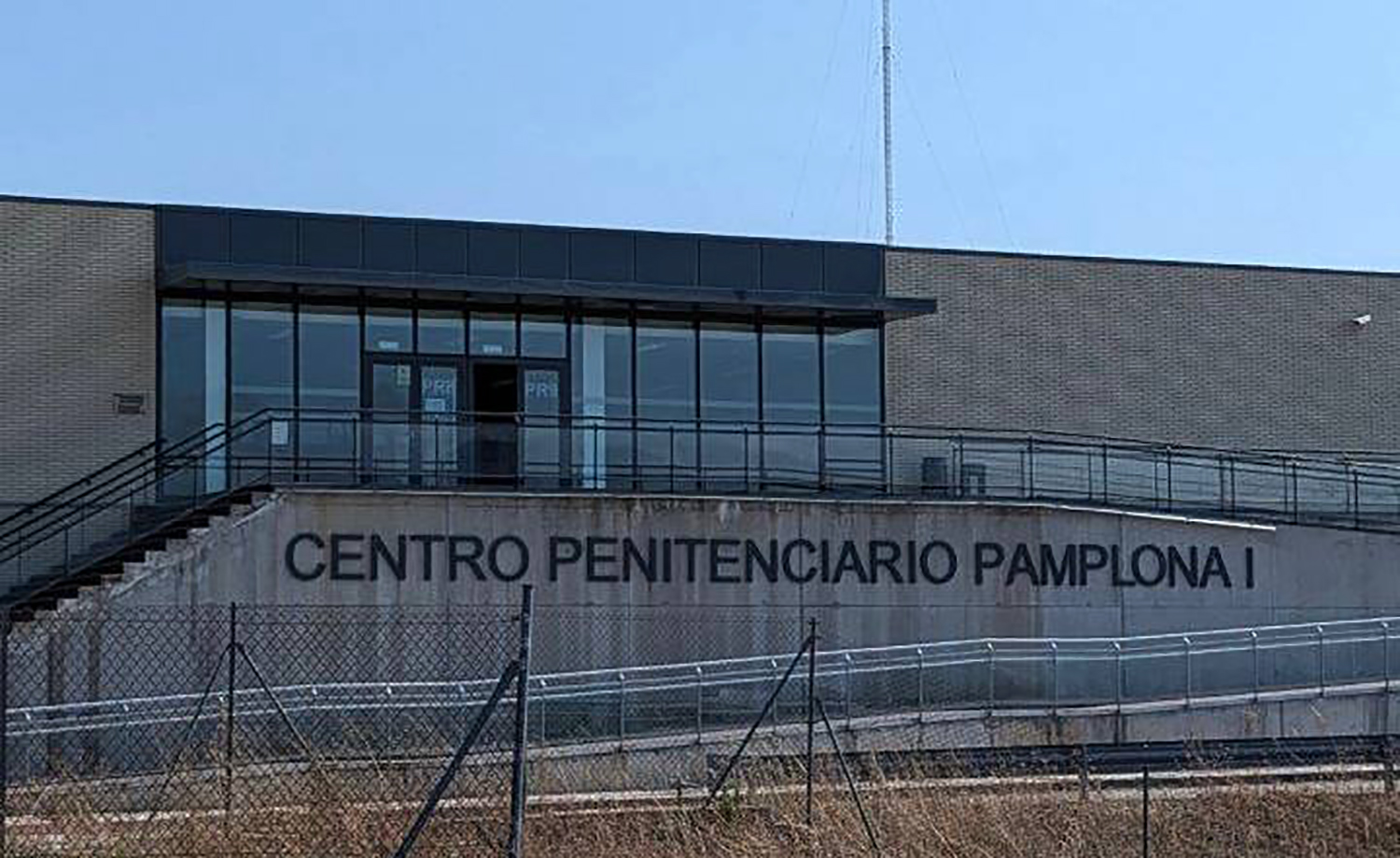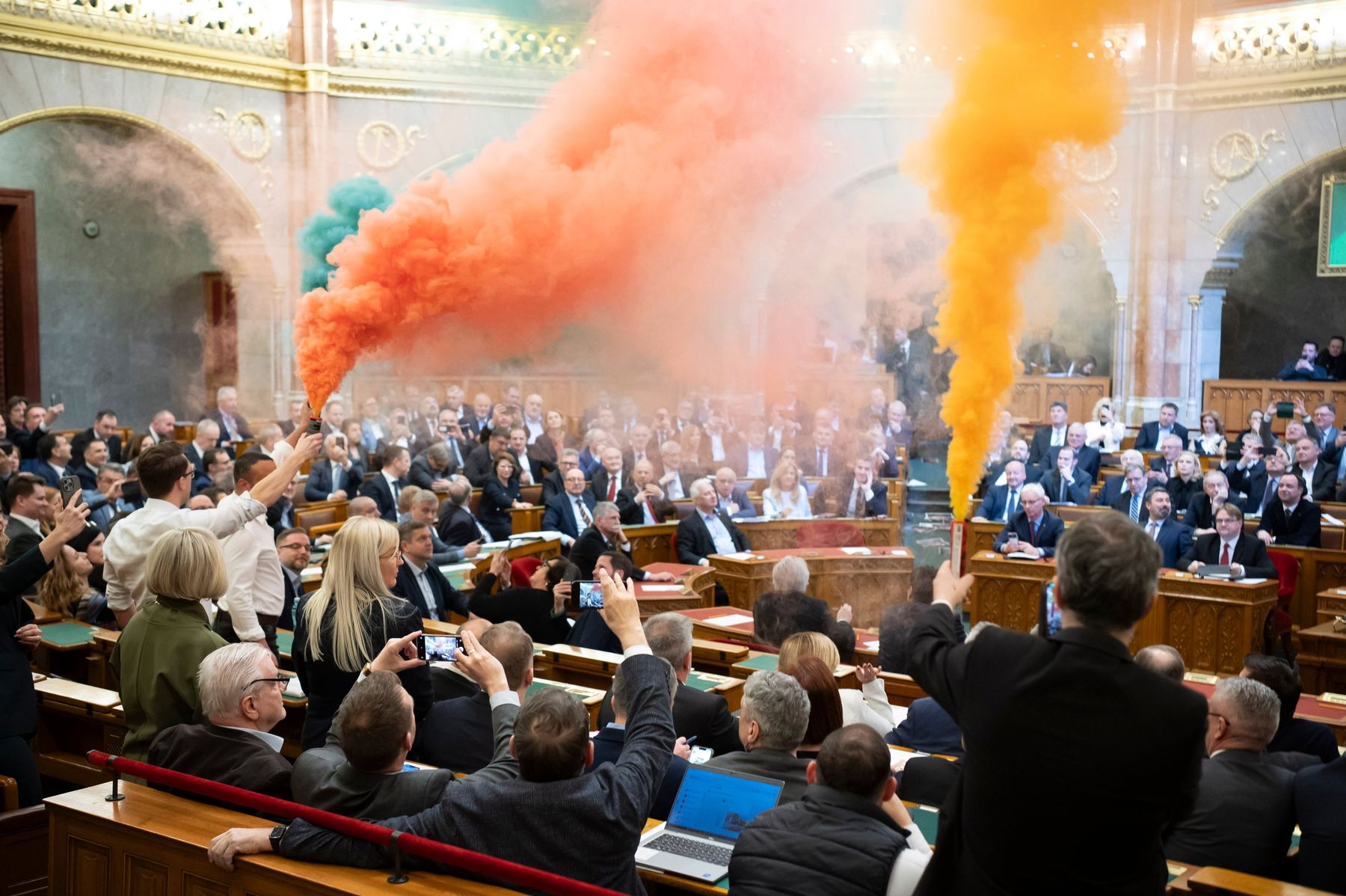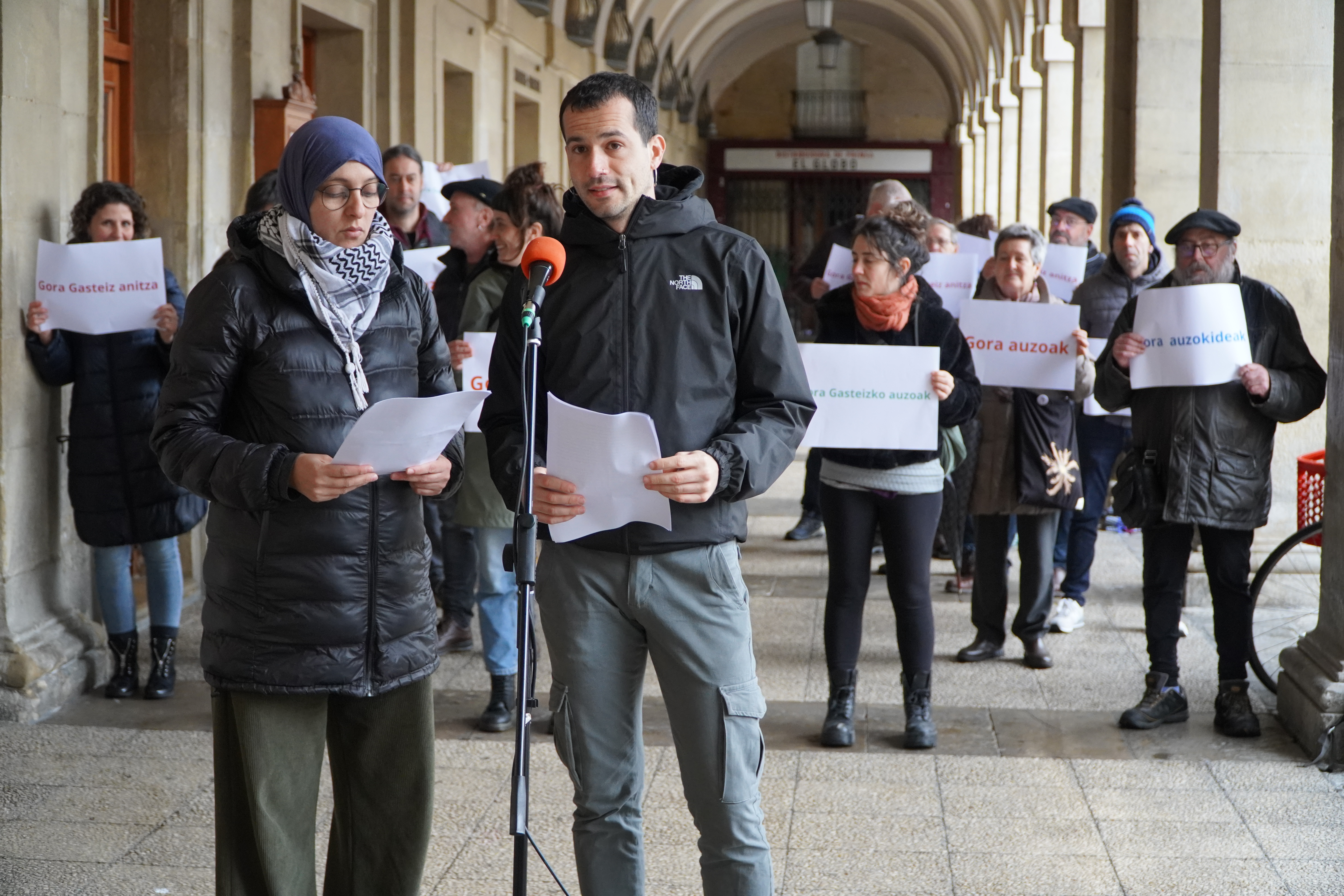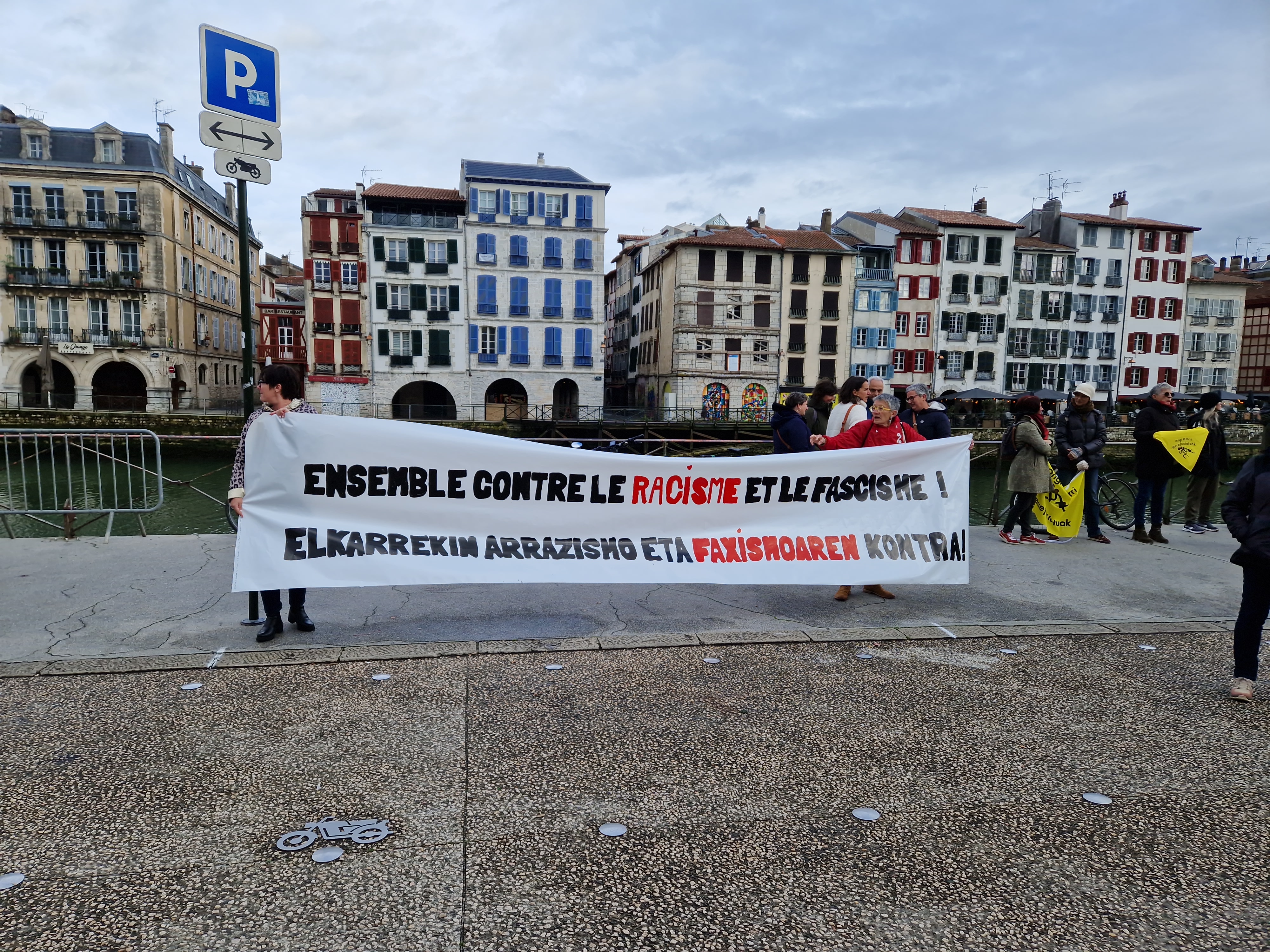"There are enough signs of a discriminatory situation that at least require an investigation to be carried out in the Deba library"
- Attorney Irati Aizpurua Alquezar has wisely answered the questions of LA LUZ and has given us a legal context about what happens in the municipal library of Deba. As we recently reported in an extensive interview, children up to 2 years old are prevented from being in the children’s library in Deba, and those 2-6 years old can only be between 16:30-17:30.

What's going on at Deba's municipal library is illegal? Is it discriminatory?
To the extent that there are signs of discrimination in the presence of an age restriction before entering the legal-illegal framework, what we do legally is the proportionality test, which is a test to assess this situation that may constitute discrimination. The test allows us to see if the restriction to a specific group (children) is a well-established or ill-established restriction (if you prefer, if it is legal/illegal). There are three main elements to consider: whether this measure has a legitimate or legitimate objective, whether the measure we have applied to achieve this objective is appropriate, and finally whether this measure is necessary and indispensable.
Is the goal fair? The municipal government says in its communiqué that the problem is the lack of space, and without this measure there may be problems of coexistence, but knowing that the spaces of adults and children are separated, it is not at all clear what is the purpose of this measure, if there is really a lack of space and/or if there is a problem of coexistence without this measure (first it should be proven that there is a problem of coexistence; compared to all the other libraries, there is only a problem of coexistence in Deba? ).
Second point: is the measure we are taking appropriate to achieve this goal? Well, I don’t know how the fact that children can only be between 16:30 and 17:30 helps to improve this coexistence, considering that the two spaces (library of children and adults) are separated. And if the problem is the lack of space, does this measure manage to compensate for the lack of space? Why is it only a restrictive measure for people up to 6 years old?
Last point: is this measure necessary? Is it necessary to deprive a specific group of rights? Is there no other way to achieve the goal? Here, too, the approach falls: if the problem is a lack of space, other measures can be taken, or the same restrictions can be applied to all. The same if the problem is coexistence: on Mondays there can be adults, on Tuesdays children... so that the restrictions are the same for everyone. I suspect that if the municipal government does not have other arguments to justify the objective and the measure well, it does not pass the proportionality test.
If you don't pass the proportionality test, is it illegal?
If it does not pass the proportionality test, the measure is discriminatory with respect to a collective, and the administration should clearly modify the measure to ensure equality.
The reduction of hours is not written in any regulation, it is a practice that has been maintained for years. How does this affect the issue?
It has a great impact, since any activity of the public administration must be included in the regulations, and the timetable is placed at the door, also on the web, but the Law 11/2007 on Libraries of the Basque Country, in its article 18.2, makes clear that the minimum timetable will be determined by regulations, "to guarantee the rights of the users of the public reading network of the Basque Country". The library clearly needs a regulation detailing the rights and obligations of users and the consequence, fine or penalty of not complying with that regulation. For example, the penalty for not returning the book in time.
If the families with the one-year-old boy are in the library at six in the afternoon, what is the consequence? Will the librarian tell you how to get out based on what? And what's the fine? What’s more, being out of the 16:30-17:30 hours with the child up to 6 years old is not even disobedience because there are no rules to disobey!
If the reduction in hours is not well reflected in a rule, it is very serious. If included in the regulation, the rule should explain why it makes this reduction of hours and justify the measure, considering that it does not happen anywhere else; what makes Deba special to implement this rule?
Therefore, since it is not covered by any regulations and is based on a practice, do families have the right to be present at any time?
There will be no legal consequences.
Library For all, when the group of citizens knocks at the door of the Basque Government’s Library Service, the latter responds that the competence of the libraries belongs to the municipal governments, and that the Law of Libraries does not say anything about it.
The Library Act does mention, for example, that public libraries must be open to all, “regardless of age, race, sex...” It says clearly that the library must be open to everyone without distinction, and if you make a distinction, you must fully justify why (again, it leads us to the proportionality test).
And in terms of competencies, I understand that each municipality can determine library hours, but Article 21 says that the Basque Government’s Library Service is also responsible for “monitoring the public reading network”, and a discriminatory practice cannot be tolerated.
And while we’re talking about laws, I’d like to mention the Children and Adolescents Act, recently passed in 2024, which defends the rights to education and culture among the rights (which the library fully embraces) and seeks to ensure that children and adolescents are not discriminated against either by adults or by children because of their socio-economic status (and libraries will likely benefit those who are worse off in their socio-economic status). The Public Administration defines a series of principles and obligations in defense of the rights of children and adolescents; the enactment of this law in 2024 and the existence of this situation in Deba, well...
On the other hand, we are talking about children, but also from a gender perspective, considering that, as this same group of mothers in Deba says that it is mainly women who are in charge of the care of these children, these caregivers are also directly affected by the issue, and the public administrations are obliged to measure the gender impact of their measures, if they affect women in a harmful way.
They have also knocked on the door of the Ombudsman, who has replied that it is not up to him to intervene between one management model or another.
I'm very surprised, I'll tell you the truth. There are sufficient indications of a situation of discrimination that at least require an investigation to be carried out to assess whether the measure passes the proportionality test or not, and if it does not, there is discrimination.
Segurtasun falta dagoen irudipena handitu dela azaldu du Eustaten azken txostenak. Gurean, Trapagaranen, Segurtasuna orain, delinkuenteen aurka manifestaziora deitu dute herritar batzuek.
Bi izan dira sentsazio hori zabaltzeko arrazoiak. Batetik, udalak Udaltzaingoaren... [+]
Hainbat kolektibo daude Gasteiz Anitzaren atzean. Egoera larrien aurrean "soilik poliziaren esku hartze gehiago" eskatzen duen eta "eskubideen urraketei entzungor" egiten dion ereduaren aurrean, beste praktika eredu bat egiteko saiakera dela adierazi dute... [+]
Hirurehun bat pertsona hurbildu ziren jende katea osatzeko Marengo eta Pannecau zubien artean.
Trintxerpen hasi eta Donostian bukatu da hainbat kolektibok deitutako XXVIII. Arrazakeriaren Kontrako Martxa.
Hurrengo ariketa egin ezazu zure lantokian, euskaltegian edo gimnasioan:
Altxa eskua Minneapoliseko George Floyd nor den dakizuenok.
Altxa eskua Madrilgo Mame Mbaye nor den dakizuenok.
Altxa eskua Barakaldoko X nor den dakizuenok.
Mame Mbaye manteroa duela zazpi urte... [+]
Lau turistak eraso zieten jatorri pakistandarreko hainbat langileri, Lekeitioko Gazte Asanbladak salatu duenez.
1960ko martxoaren 21ean, Hegoafrikako Poliziak 69 lagun hil zituen apartheidaren kontrako manifestazio baketsu batean. Ordutik, egun hori Arrazakeriaren eta Xenofobiaren Nazioarteko eguna ospatzen da, aldarrikapenez beteta. SOS Arrazakeriak urtero gai ezberdin bat lantzeko... [+]
Pertsona lodiek lodiak izateagatik bizi izan duten eta bizi duten indarkeriaren inguruan teorizatzeko espazio bat sortzea du helburu ‘Nadie hablará de nosotras’ podcastak. Cristina de Tena (Madril, 1990) eta Lara Gil (Fuenlabrada, Espainia, 1988) aktibista... [+]




















